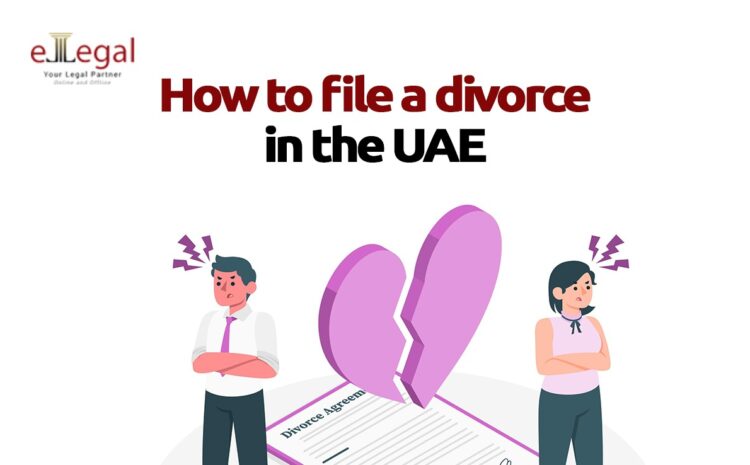
Introduction
A combination of federal personal status laws, Sharia principles for Muslim couples, and specialized provisions for non‑Muslim expatriates governs divorce in the United Arab Emirates. Recent legislative reforms, most notably Federal Decree‑Law No. 10 of 2022 on Personal Status for Non‑Muslims, have modernized procedures, clarified jurisdictional issues, and streamlined case management. This guide provides a comprehensive, up‑to‑date overview of the divorce process, including types, grounds, documentation, timelines, and strategic considerations.
Divorce Laws in the UAE and Recent Updates
- Federal Law No. 28 of 2005: Original Personal Status Law governing family matters for Muslims, incorporating Sharia principles.
- Federal Decree‑Law No. 10 of 2022: Introduced a dedicated personal status framework for non‑Muslim residents, enabling expats to apply their home country’s personal status laws within UAE courts.
- Dubai Law No. 12 of 2019 (as amended): Strengthened the role of Family Guidance Committees in Dubai Courts, emphasizing mediation and reconciliation before litigation.
- Federal Decree‑Law No. 6 of 2023: Enhanced child protection and custody provisions, extending the mother’s custodial rights up to age 15 unless the court deems otherwise.
These reforms reflect the UAE’s commitment to international best practices, accelerated dispute resolution, and heightened protection for children and vulnerable spouses.
Types of Divorce
- Mutual Consent Divorce (“Khula” or “Talaq Al‑Meezan”)
- Both parties agree to separation terms (maintenance, property division, custody).
- Filed jointly at the Personal Status Court or through the Family Guidance Committee for mediation.
- Average timeline: 2–4 months.
- Contested Divorce (“Talaq Al‑Tatlees”)
- One party seeks divorce without the other’s consent.
- Initiation leads to conciliation hearings; unresolved cases proceed to full court hearings.
- Average timeline: 6–12 months (complex cases may extend longer).
- No‑Fault Divorce (Non‑Muslims)
- Under Decree‑Law No. 10/2022, expats may petition for divorce without alleging fault, using their home country’s grounds.
- Relevant for British, Indian, Egyptian, and other communities with reciprocal treaties.
Grounds for Divorce
- For Muslim Couples (Sharia‑Based)
- Talaq: Husband’s unilateral repudiation (subject to Iddah waiting period).
- Khula: Wife’s right to seek divorce in exchange for compensation.
- Adultery (Zina): Verified extramarital relations.
- Cruelty (Jihaad): Physical or emotional abuse endangering spouse or children.
- Desertion (Ila): Abandonment exceeding one year without valid reason.
- Impotence (Ilaaj): Inability to consummate marriage after marriage ceremony.
- Non‑Maintenance (Nafaqah): Failure to provide legally mandated financial support.
- For Non‑Muslim Expatriates
- Grounds mirror those of the applicant’s home jurisdiction (e.g., no‑fault, irretrievable breakdown).
- Courts require documentary proof per home law (e.g., UK decree nisi, Indian divorce decree under Hindu Marriage Act).
Grounds for Divorce in the UAE:
In the UAE, Islamic law governs the grounds for divorce, and they include:
- Adultery (Zina):
If one or both spouses engage in extramarital affairs, it can be grounds for divorce.
Cruelty (Jihaad):
- Sustained physical or emotional abuse that endangers the well-being of the spouse can be a valid ground for divorce.
- Desertion (Ila):
- If one spouse abandons the other for an extended period without just cause, it can be a reason for divorce.
- Impotence (Ilaaj):
If a spouse is unable to fulfill their marital duties due to impotence or other physical incapacity, it can be grounds for divorce.
- Lack of Financial Support (Nafaqah):
Failure to provide adequate financial support to the spouse can be a basis for divorce.
Divorce is a significant life-altering decision that should not be taken lightly. Understanding the different types of divorce available in the UAE, recognizing signs that may indicate the need for divorce, and being aware of the legal grounds for divorce can help individuals navigate this challenging process. Consulting with a knowledgeable family lawyer is essential to ensure that your rights are protected and to guide you through the complexities of divorce proceedings in the UAE.
How to Get Divorce in UAE
- Legal Consultation: To get a divorce in the UAE, you can engage our experienced UAE family lawyers to advise you on personal status law applicability and strategy during a free consultation.
- Mediation/Moscow Session: Attend mandatory conciliation through the Family Guidance Committee (Dubai) or equivalent in other Emirates.
- Document Preparation:
- Valid marriage certificate (attested and translated).
- Passport copies, residence visas, Emirates IDs.
- Proof of nationality/personal status law (non‑Muslims): embassy certificates, home‑court filings.
- Financial records: bank statements, salary certificates, property deeds, prenuptial agreements.
- Budget Planning: With are the most affordable divorce lawyers and budget-friendly in the UAE.
- Evidence Assembly: For contested cases, medical reports (abuse), communication logs (desertion), and forensic statements.
- Child Considerations: Draft proposed parenting plan: schooling, accommodation, visitation schedule, healthcare arrangements.
What is the Process for Divorce in the UAE
5.1 Muslim Couples
- Joint Petition: Submit Form PS1 (Personal Status) at the court registry or electronic portal.
- Conciliation Hearing: First session within 15 days; Family Guidance Committee recommends settlement or issues certificate.
- Court Review: Judge examines agreement or hears evidence (contested).
- Judgment & Iddah: Decree issued; Iddah period observed (3 lunar months; extended if wife pregnant).
- Appeal Window: 30 days to file an appeal on factual or legal grounds.
5.2 Non‑Muslim Expatriates
- Eligibility Confirmation: Our family Lawyer obtains embassy or home‑court certification confirming applicable personal status law.
- Petition Submission: File petition under Decree‑Law 10/2022 with required annexures.
- Pre‑Trial Conference: Court schedules case management meeting within 30 days.
- Evidence Exchange & Hearings: Sequential exchange of witness statements, expert reports, foreign decrees.
- Final Decree: Issued upon satisfaction of procedural and substantive requirements; recognition for enforcement in home country may follow.
Post‑Divorce Considerations
- Issuance of Divorce Certificate: Required for civil status updates (MOHRE, passport control).
- Custody & Guardianship: Mothers retain primary custody until age 15 unless best interests override; fathers assume guardianship for major decisions.
- Financial Settlements: Maintenance orders (spousal/child) enforced via wage garnishment and UAE enforcement offices.
- Property Transfers: Jointly‑held real estate requires Title Deed amendments at the Land Department.
- Entry/Exit Permits: Sponsor transfers or cancellation of residency; visas of dependents require new sponsorship.
How Long Does It Take to Get a Divorce in the UAE
Divorce proceedings in the UAE can unfold anywhere from a few months to over a year, depending on the chosen procedure, case complexity and how smoothly spouses collaborate. Mutual‑consent splits, Khula or Talaq al‑Meezan are typically wrapped up quickest, since both parties agree on the core terms and bypass much evidence‑gathering. Contested divorces (Talaq al‑Tatlees), by contrast, require formal hearings, witness statements and sometimes expert reports, which naturally extend the process. To map out a realistic schedule for your circumstances and accelerate each step, you can engage our family lawyer at the outset for a faster and seamless divorce process.
Tips for a Smooth Process
- Maintain Professionalism: Keep communications courteous; avoid social media grievances.
- Leverage Technology: Use Dubai Courts’ e‑channels for faster document filing and hearing schedules.
- Engage Experts Early: Valuers, psychologists (for custody), financial auditors speed up evidence gathering.
- Consider ADR: Early mediation or collaborative law reduces costs and preserves relationships, especially when children are involved.
Conclusion
Filing for divorce in the UAE requires careful navigation of both Sharia-based and civil procedural rules. Recent reforms have enhanced clarity for non‑Muslim expatriates while reinforcing child protection and mediation mechanisms. By preparing thoroughly, engaging us, and leveraging ADR, stakeholders can achieve fair, timely, and enforceable outcomes that respect the rights of all parties. Contact us today for a free consultation.





